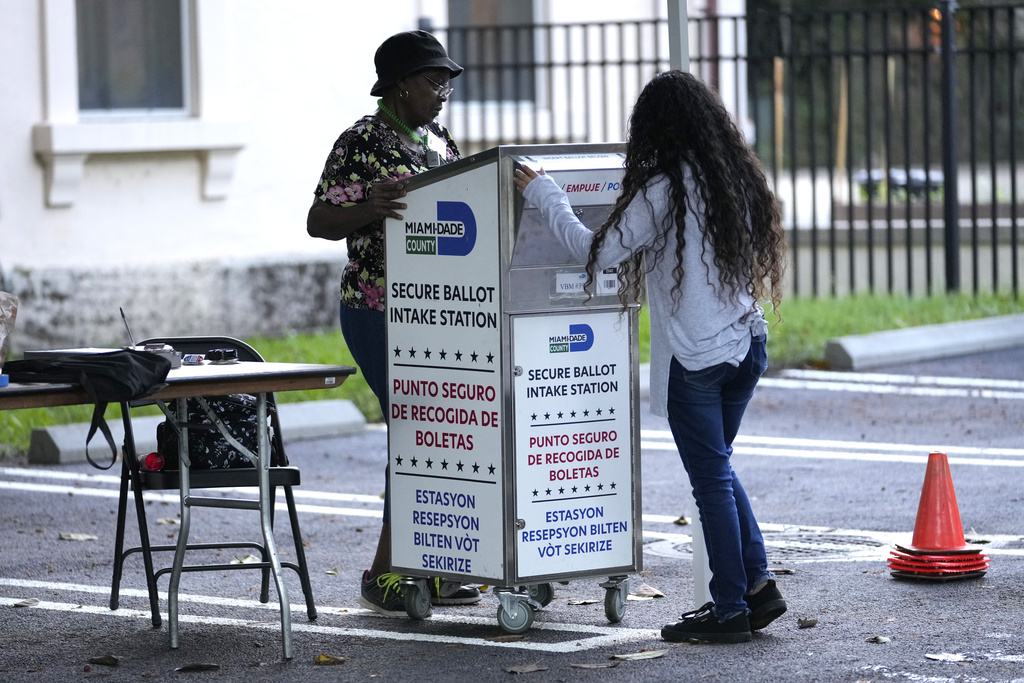One of the ways that Donald Trump has reshaped American politics over the past decade is to shift our collective focus from debate about policy choices to disagreement about simple facts, encouraging baseless questions about the integrity of U.S. elections to be raised in the minds of many in the electorate. These disagreements about facts range from the historic to the absurd: What happened at the U.S. Capitol on Jan. 6, 2021? Have Democrats ushered in millions of illegal immigrants to cast illegal votes for Kamala Harris? Are Haitians stealing and eating pets in Springfield, Ohio?
There are concrete, provable answers to such questions. Since Trump and his proxies continue to raise the questions, it is the obligation of journalists to report — and re-report — the answers, the facts. The ethical subtext of this journalistic exercise is no less profound than underscoring the distinction between falsehood and truth: that there’s a difference, often one beyond honest debate, and that factual reporting can establish the dividing line.
During election season, when voters make the political choices that help define the very nature of American society, all journalists, whatever their specialty, need to defend the factual basis for democracy. That applies whether reporters typically focus on politics, economics, immigration, health care, crime, the environment, racial relations or even disaster relief. All hands on deck.
The tech angle
Technology — specifically social media — has played a contributing role in muddying the line between truth and falsehood. Other media — including hyper-partisan cable television and talk radio, podcasts, and click-bait websites — also exacerbate the problem. Journalists need to explain to their readers, viewers, and listeners that the technological core of social media, which is more difficult to understand than what’s going on at Fox News or MSNBC, is an important part of the problem.
In brief, the algorithms that social media platforms rely on to rank, recommend, and amplify content are designed to prioritize material likely to maximize screen time and user “engagement.” The latter refers to users sharing, liking, or commenting on content. Social media companies like Meta (Facebook, Instagram), Google (YouTube), and ByteDance (TikTok) seek to increase screen time and engagement because those are key metrics that attract the advertising revenue that makes those companies so profitable. (Twitter, now X, is a special case, as its owner, Elon Musk, has transformed his platform into a haven for extremists and an arm of the Trump campaign. This, too, requires sustained attention from journalists.)
The battle over facts and the role of technology in heightening the fog of information warfare will heighten as Election Day approaches, in part because social media companies have retreated from protecting election integrity, as I’ve written here. If Kamala Harris wins, the chaos on this front could intensify, because, as he has already signaled, Trump will likely claim election fraud and refuse to concede. The election denialism of late 2020, culminating in the violence of Jan. 6, 2021, could be a harbinger of worse to come. In a separate report, I’ve written about the role of social media in facilitating political intimidation and attacks.
Journalists need to step up
These grim prospects provide an opportunity for American journalists to step up.
The truth is that voting in this country is relatively safe and secure. The results are reliable. Under tremendous pressure in 2020, election officials at all levels did their jobs, defied violent threats, and delivered free and fair polling. The judicial system entertained challenges but ultimately rejected waves of baseless fraud claims. These facts demand continued attention — now and in coming weeks and months.
By all means, report the occasional glitches, the long lines here or there, the delays occasioned by mandated recounts. But journalists need to defend the mechanics of democracy by also reporting the facts about the actual soundness of the overall system, not the corrosive conspiracy theories emanating from candidates and their social feeds.
Have additional thoughts? Think we’re missing something? Email us to keep the conversation going.
Paul M. Barrett is deputy director of the NYU Stern Center for Business and Human Rights and an adjunct professor at the NYU School of Law. Before joining the Center in 2017, he worked for 30 years at The Wall Street Journal and Bloomberg Businessweek magazine. He is the author of four nonfiction books.


